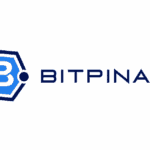
Circle and Paxos have launched a pilot system to verify stablecoin issuers and block counterfeit tokens, aligning with new U.S. regulatory standards.
Summary
- Circle and Paxos pilot a cryptographic system to verify stablecoin issuers.
- The initiative aligns with the U.S. GENIUS Act for federal oversight of stablecoins.
- It aims to prevent counterfeit tokens, boost trust, and drive stablecoin adoption.
According to an Aug. 27 report by Bloomberg, Circle Internet Financial and Paxos Trust Company have begun a pilot program for a new “know-your-issuer” system. By verifying the legitimacy of stablecoins at the time of issuance and transaction, the initiative aims to address long-standing concerns about counterfeit tokens.
How the system works
The verification tool, which was developed in partnership with the fintech startup Bluprynt, embeds cryptographic proof-of-issuer credentials directly into stablecoin transactions. Thus, it would be possible to track down the verified issuers of USD Coin (USDC), PYUSD, and USDP tokens issued during the pilot in real time.
The system removes the need for third-party audits and stops “copycat” tokens, which mimic genuine stablecoins but lack the necessary reserves or regulatory clearance.
Early testing showed that the system could seamlessly integrate across multiple blockchains, giving regulators and issuers a clear picture of the origins of tokens. The main objective of the pilot was to reduce the risks related to fraudulent stablecoins, a growing issue brought to light by companies such as Chainalysis.
Broader impact and regulatory context
The pilot closely aligns with the recently passed GENIUS Act, which sets federal standards for dollar-backed stablecoins. Lawmakers anticipate this framework will speed up adoption and potentially push stablecoin usage into the trillions, given the market’s current valuation of roughly $273 billion.
Circle and Paxos are both setting up shop to function under a single federal regulator. On Aug. 11, for example, Paxos reapplied for a national trust bank charter to grow beyond its license from the New York Department of Financial Services.
The KYI model may also apply to other GENIUS Act-compliant tokens that rely on tokenized U.S. Treasuries, like Ethena’s USDtb and Frax Finance’s frxUSD. The tool enhances investor trust and DeFi integrations while also assisting regulators by embedding provenance at the protocol level.







No Comment! Be the first one.